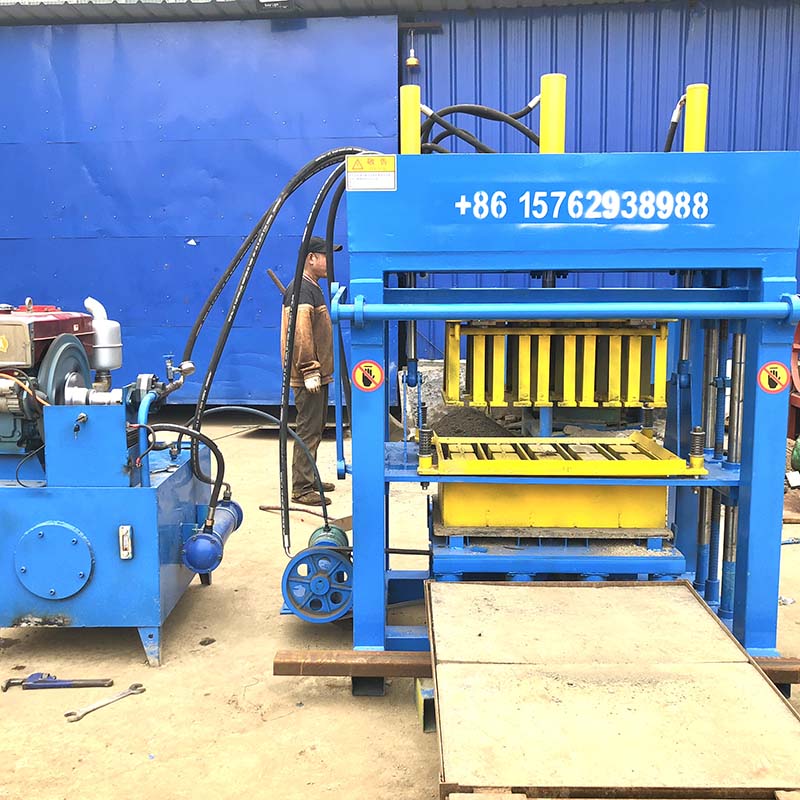
Image source:Aiwei block machine
Introduction
In the pursuit of sustainable development and economic progress, local industries play a pivotal role in driving growth, generating employment, and fostering self-reliance within communities. Concrete block making machines, once seen as mere tools of construction, have emerged as catalysts for empowerment, transforming local industries into vibrant engines of economic growth. In this article, we explore the profound impact of concrete block making machines on local economies, highlighting their role in job creation, entrepreneurship, skill development, and the overall well-being of communities.
1. The Local Industry Landscape: A Crucible of Economic Growth
Local industries, often rooted in the cultural fabric of a region, serve as vital contributors to economic development and community well-being.
- Job Creation: Local industries generate employment opportunities, reducing unemployment rates and driving economic resilience.
- Entrepreneurship: Empowering individuals to become entrepreneurs fosters economic diversity and self-reliance.
- Community Development: Local industries contribute to the growth of local economies, leading to improved living standards and infrastructure.
2. Concrete Block Making Machines: From Construction Tools to Economic Catalysts
Concrete block making machines have transcended their utilitarian roles, evolving into instruments of economic transformation within local industries.
- Job Generation: The operation and maintenance of these machines require skilled operators, creating employment opportunities.
- Entrepreneurial Ventures: Individuals can establish small businesses centered around concrete block production, contributing to local economies.
- Skills Enhancement: Concrete block making machines offer opportunities for skill development, enhancing the employability of local communities.
3. Job Creation and Economic Upliftment
Concrete block making machines have the power to unlock job opportunities across different skill levels, from operators to managerial roles.
- Skilled Operators: Operating and maintaining machines necessitates skilled individuals, providing stable employment opportunities.
- Managerial Positions: As businesses grow, the need for managerial roles emerges, offering career progression for local residents.
4. Fostering Entrepreneurship and Self-Reliance
The accessibility of concrete block making machines empowers individuals to establish their own businesses, fostering entrepreneurship.
- Small Business Ventures: Entrepreneurial individuals can set up micro and small businesses, producing concrete blocks for local construction projects.
- Local Supply Chains: Concrete block production can stimulate local supply chains, promoting self-reliance and community economic resilience.
5. Skill Development and Capacity Building
Concrete block making machines offer avenues for skill development and capacity building, enriching the capabilities of local communities.
- Technical Skills: Learning to operate and maintain machines enhances technical skills and increases employability.
- Management and Marketing: Entrepreneurial ventures require skills in business management, marketing, and customer relations.
6. Nurturing Local Economies: Case Studies
Case studies of regions that have embraced concrete block making machines as tools of economic empowerment showcase their transformative impact.
- Rural Empowerment: In rural areas, individuals have started small businesses, producing concrete blocks for local housing and infrastructure projects.
- Urban Redevelopment: In urban settings, customized concrete blocks have paved the way for innovative architectural designs, attracting investment and tourism.
7. Sustainability and Long-Term Growth
Concrete block making machines contribute to sustainable economic growth by fostering local industries that are deeply connected to the community.
- Diversification: Local industries diversified through concrete block production are less vulnerable to economic shocks.
- Strengthening Resilience: Empowered communities with diverse economic opportunities are more resilient to external challenges.
8. Challenges and Support Mechanisms
While concrete block making machines offer tremendous economic potential, challenges must be addressed to ensure sustainable growth.
- Access to Capital: Entrepreneurs may face challenges in securing initial capital to invest in machines and infrastructure.
- Market Demand: Sustaining local businesses requires a consistent market demand for concrete blocks.
9. Government Support and Policies
Government policies and support play a crucial role in amplifying the positive impact of concrete block making machines on local industries.
- Financial Incentives: Governments can offer subsidies, grants, and low-interest loans to support entrepreneurs in acquiring machines.
- Skill Development Programs: Collaboration between governments and training institutions can offer skill development programs for operators and entrepreneurs.
Conclusion: Paving the Road to Prosperity
Concrete block making machines have transcended their utilitarian roles to become instruments of economic empowerment, fostering entrepreneurship, and driving local economies. Through job creation, skill development, and the cultivation of local industries, these machines have the potential to uplift communities, spark innovation, and contribute to sustainable development. As concrete block making machines continue to pave the road to prosperity, they remind us that economic growth is not solely about numbers; it’s about transforming lives, nurturing dreams, and empowering local industries to build resilient and thriving communities.
